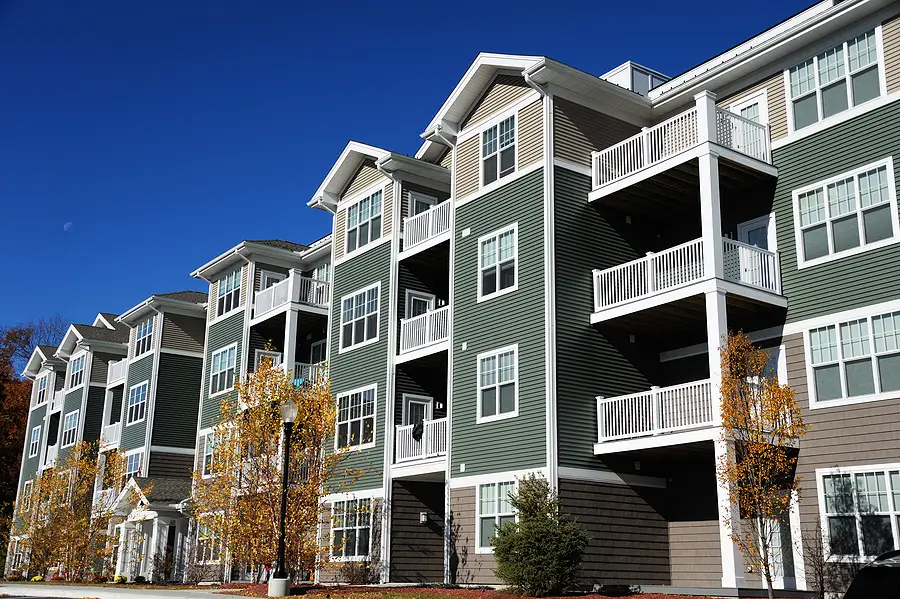Learning about the differences between property types is essential to knowing which real estate investment would suit you best. Residential and commercial real estate are the most common types of properties, and both have significant differences that can affect how you handle operations, market your properties, and set lease agreements.
Key Differences: Commercial vs Residential Real Estate
Tenant Demographics
- Residential properties tend to have individual or family tenants, as they are meant to be private residences. That could mean that each unit will have a smaller space that can fit one or more people, depending on the kind of residential real estate property.
- Commercial properties are typically for businesses and can serve as retail spaces, offices, areas for commercial activities, or industrial use so the space will be much bigger to accommodate more people.
Lease Term
- Residential properties have shorter lease terms that can span from six months to a year. Therefore, it might not be the most stable real estate business when it comes to vacancy and may need a more active marketing campaign to ensure a low vacancy rate.
- Commercial properties, on the other hand, have longer lease agreements with an average term of three to seven years, which is a more secure source of rental income for a property owner. The duration depends on the kind of business and space you have.
Financing
- Residential Properties can be cheaper to finance whether it’s single-family or multifamily apartment buildings. This can be a good start for people who are new to the real estate industry.
- Commercial Properties require higher initial investments, especially since commercial buildings and other commercial spaces are also bigger in size. They also typically have higher interest rates than residential real estate units.
Investment Potential
- Residential properties are generally more accessible to individual investors and offer steady cash flow, so residential real estate investing serves as a good option for those who are new to the venture and want to passively generate income.
- Commercial properties can be a more lucrative real estate investment. Investors can get higher returns but should also expect greater risks, given that commercial buildings are affected by various market conditions more.
Demand
- Residential properties are in higher demand since plenty of people are in the market for residences, which is why investing in residential real estate property can be considered a safer option than commercial real estate property.
- Commercial properties are usually in demand for companies that use them as industrial buildings, retail stores, office buildings, or other business purposes which is why commercial leases are longer since the commercial property needs to be in an established location.
Maintenance
- Residential buildings might not require as much maintenance as commercial real estate properties, given that residential tenants bear some of the responsibility of keeping the unit in good shape. That’s not to say that the landlords don’t have to play their part as well.
- Commercial buildings might need more upkeep, especially since commercial tenants usually let the responsibility of maintaining the property fall on the property owner. That’s why hiring a property manager might be the best option. Blue Line Property Management offers services like property maintenance, accounting, rent collection, tenant placement, retail vacancy marketing, and more.
Market Influence
- Residential properties are not exempt from the local market conditions. Both commercial and residential properties can be affected by the highs and lows of the economy, but it won’t be as significant with residential.
- Commercial properties, however, are affected by economic downturns more based on changes in factors like consumer behavior. That’s why thorough research is essential before investing in commercial real estate, especially since the down payment for such properties is larger.
What to Consider for Residential Property Investment
Location and Neighborhood
Since residential real estate properties are considered homes, you should consider whether the neighborhood is family-friendly with low crime rates, or near a good school, especially for single-family homes or multifamily apartments. This can encourage longer leases and attract more prospective tenants.
Property Type
Residential real estate can vary in forms such as homes, apartments, and condominiums. Each type will have the appropriate amenities and prospective tenants will consider those factors when determining whether they would rent the residential units.
Condition
The state of a residential real estate building will affect the tenants you attract. When the residential real estate property has extensive damage and poor maintenance, it might not be worth the real estate investment since it will cost you more to repair and refurbish it.
Management
One of the key differences between commercial and residential real estate is management, specifically that the latter is less work. That doesn't necessarily mean that it's easier. You still have to make sure tenants do not violate their residential leases or handle maintenance emergencies for example.
Tenant Communication
Since being a residential property owner is about housing individuals and families, it's more than just collecting rental payments. While commercial properties tend to be all business, a successful business in residential real estate lies in knowing what your tenants need from you as a landlord, which can solidify your reputation as a good landlord and protect your residential investments.
What to Consider for Commercial Property Investment
Location
Since commercial real estate buildings are usually rented out by clients who run retail stores, shopping centers, and industrial businesses, the location of the property is important for both commercial and residential properties. Commercial real estate investments might be worth more if it’s around city centers or shopping districts.
Laws and Regulations
Commercial real estate units require more complex management because of stricter zoning laws and regulations. Even building permits may vary for units like retail spaces or industrial properties. Hiring a professional property management company will give you access to expertise that you might not have in this aspect, and they can help you draft a commercial lease that does not violate such laws.
Tax Implications
Commercial real estate properties are taxed at a higher rate than residential properties. However, commercial real estate investors can benefit from tax deductions, such as depreciation and mortgage interest.
Financial Resources
As mentioned before, commercial investments are usually heavier than residential real estate investments. Apart from the property expenses due to potential wear and tear, the initial investment for commercial real estate is quite expensive. Since it's less of a guarantee than what residential properties offer, you'll need to have a high-risk tolerance.
Management
A commercial real estate space can sometimes have five or more units, and it will take a lot of effort to ensure that it is managed and maintained. You might need all the help you can get with maximizing the net operating income of your commercial property, as well as accounting. Blue Line Management offers services for that, along with comprehensive financial reports for property owners.
Should I Hire a Property Manager to Oversee My Commercial and Residential Properties?
Commercial and residential real estate investing requires research and expertise to ensure you generate high rental income. Even then, you still need to worry about the management aspect of being a property owner. For instance, there are differences between commercial and residential lease terms, property taxes, and maintenance costs.
You can always consult professional companies like Blue Line Property Management to help. Making informed investment decisions can help you expand your portfolio of real estate assets, and hiring a company to manage them might be in your best interest to avoid being overwhelmed. For starters, you can use our free rental price analysis and get started on a plan to get higher rental income.


